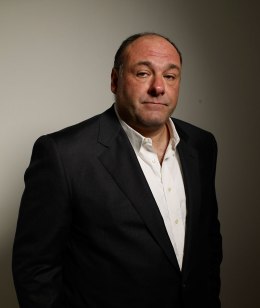
One day in 1999, James Gandolfini walked down a driveway in a bathrobe, picked up the newspaper and changed television forever. If back then you were watching this new HBO drama with the title that seemed to be about opera, then you know how much talent the world lost when he died, suddenly and too soon, at age 51 on June 19 in Rome. But with his forceful, charismatic, yet subtle performance as a suburban mobster, Gandolfini changed the TV you watched even if you’ve never watched a minute of The Sopranos.
Without Gandolfini, there would be no Tony — not as we know him. And without Tony, there would be no Walter White, no Vic Mackey, no Carrie Mathison. Through Tony, Gandolfini wrote the blueprint for the modern, complicated TV antihero; he took the wall between stand-up TV good guys and wicked bad guys and bashed it down with a baseball bat. And without The Sopranos, becoming a smash pop-culture phenom by telling an incredibly sophisticated story, it’s hard to imagine the now widespread belief that TV could be as rich, great, relevant, moving, conversation-driving and significant as any contemporary movie or even novel.
To look at him, Gandolfini was just the kind of guy you might cast for a New Jersey titan of “waste management,” bullheaded and terrifying and thus all the more ironic when squinched into a therapist’s-office chair. But he immediately brought so much more to life in Tony: his intelligence, his sadness, his fear, his self-pity, his mama’s-boy wrath. And those eyes; Gandolfini could concentrate all of Tony’s physicality and criminal cunning into them, as those black pellets darted about and he conceived a lie to tell Carmela, or a way out of a business bind.
It would have been an easy thing for Gandolfini to make us fear Tony Soprano. It would have been a neat parlor trick to make us love him. James Gandolfini — in sync with Chase and a peerless cast of co-stars — made us understand Tony, in all his pathetic, charismatic devilry. And that was the work of an artist.
